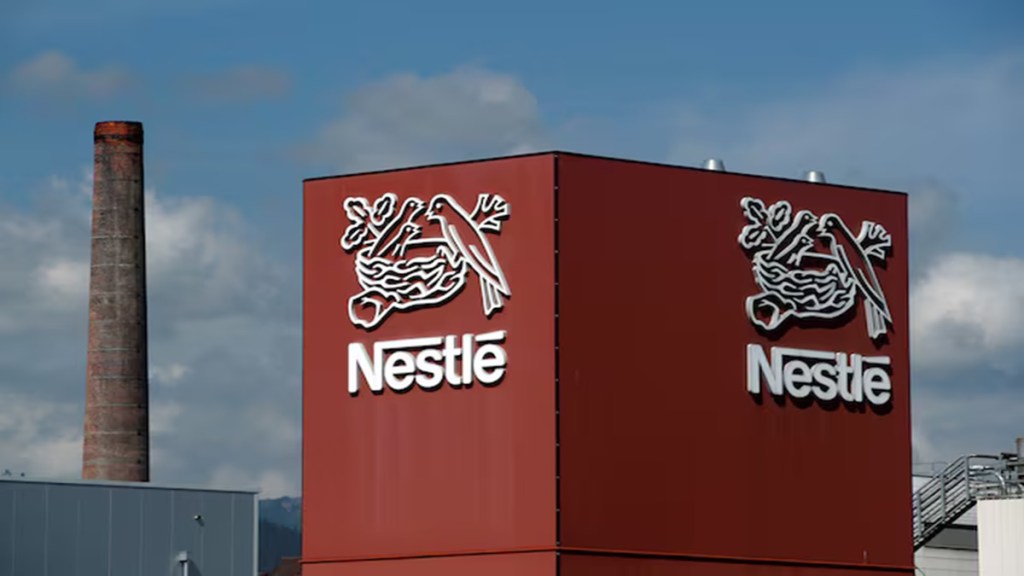Nestle India reported lower-than-expected profit for the first quarter of FY26 on Thursday due to rising commodity prices and higher operating expenses. The company’s earnings missed analyst estimates despite revenue growth, with margins narrowing due to increased input and finance costs.
Consolidated net profit for the quarter ending June fell 13.4% to Rs 647 crore from Rs 747 crore a year ago. It was below analysts estimate of Rs 802 crore. Revenue rose 6% year-on-year to Rs 5,096 crore, slightly below Bloomberg’s estimate of Rs 5,035 crore.
Growth factors
The growth was driven by a 5.5% increase in domestic sales, which rose to Rs 4,860 crore from Rs 4,608 crore in the same quarter last year. Export sales also saw an uptick, climbing to Rs 214 crore from Rs 184 crore, reflecting a 16% year-on-year rise.
Earnings before interest tax depreciation and amortisation (Ebitda) was down 1.3% to Rs 1,100 crore versus Rs 1,114 crore reported last year. Bloomberg consensus estimates had pegged Ebitda at Rs 1,149 crore for the period. Ebitda margin contracted 150 basis points to 21.6% in Q1 versus 23.1% reported last year. Street estimates had pegged the number at 23.1% for the period.
Why low margin?
The company attributed the margin contraction to elevated input costs and higher operational expenses. Nestle India is expanding its manufacturing footprint, leading to a temporary rise in costs. In addition, finance costs increased due to temporary cash-flow borrowing, it said.
“We have noticed stabilising prices for edible oil and cocoa, a declining trend in coffee and stabilising to modest increase in pricing of milk,” Suresh Narayanan, chairman and managing director, Nestlé India, said.
Despite the margin pressure, the company reported strong performance in several categories. Narayanan said that the powdered and liquid beverages category, which includes Nescafe, sustained its position as one of the largest growth drivers with “robust performance” in the June quarter registering strong double-digit growth.
The confectionery segment delivered high double-digit growth, led by a sharp rise in volumes. Seven of Nestle India’s twelve top brands recorded double-digit growth during the quarter. Urban consumption showed strong momentum, with significant demand driving growth in city markets, he added.
E-commerce remained a key growth channel, contributing 12.5% to domestic sales. Quick commerce platforms and new product launches played a critical role in sustaining e-commerce momentum.
Narayanan said the company remained focused on investing in capacity expansion and innovation to drive long-term growth, despite short-term cost headwinds.
Nestle India’s share price closed over 5% lower at Rs 2,316 on the NSE following the results on Thursday.
Out of 30 analysts tracking the company, 10 maintain a ‘buy’ rating, 18 a ‘hold’ and 12 suggest ‘sell’, according to Bloomberg data. The average 12-month consensus price target implies an upside of 3.9%.

